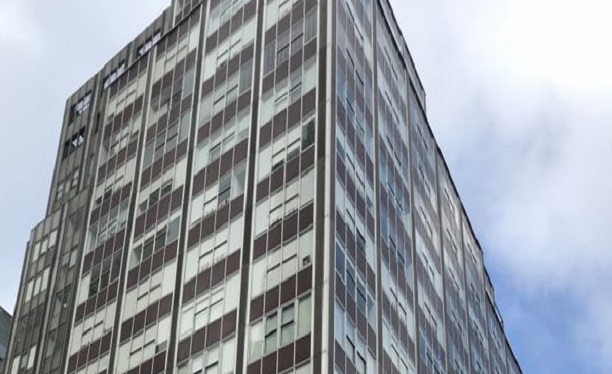 Photo credit: DBRS. TriBeCa House Conduit
Photo credit: DBRS. TriBeCa House Conduit
New office buildings come to market all the time sporting the latest in amenities and location.
At the same time, there has been a quiet resurgence of developers repurposing older buildings, otherwise known as adaptive reuse.
“The notion of repurposing old buildings has been around for a long time,” says Kevin Augustyn, Consultant, North American CMBS, a group within the credit-rating agency, DBRS. For tenants, “adaptive reuse has grown in popularity because people enjoy buildings with a sense of uniqueness and appreciate how environmentally appropriate it can be to renovate the building instead of breaking new ground.”
As for real estate investors, they are interested in adaptive reuse for a host of reasons including tax incentives.
“One of the biggest advantages of repurposing old buildings are the tax incentives,” says Stephanie Hughes, Business Writer, North American CMBS. “The 20% tax credit can greatly help offset some of the renovation costs. We are basically teaching the old building new tricks while being financially astute.”
The key characteristics that makes an older building valuable are their locations and whether or not the property has a historic landmark distinction.
Properties like “Toronto's Distillery District, Chicago's Civic Opera Building and New York City's Colman Building hold a heritage title, where many buildings constructed before 1950 often fade into obscurity. While these heritage buildings tend to require more maintenance and renovation efforts, they can also demand more rent per square foot and a higher purchase price,” Hughes tells Globe.St.com.
Commercial real estate investors find repurposing buildings advantageous for many reasons including:
- Renovating a building can be cheaper for companies than new construction;
- A lot of historically preserved properties are located in densely populated cities and prominent neighborhoods, which can benefit companies;
- Historic buildings, especially industrial properties, can be very spacious and allow for a customized tenant build out; and
- In light of new trade-war tariffs, renovations can help alleviate the costs of steel and aluminum required to construct brand-new properties.
“There is definitely a growing trend of people gravitating towards and investing in older buildings,” says Augustyn. “Before deciding to retire buildings, investors should look more closely at assets – not what they are, but what they could be.”
Founded in 1976, DBRS provides independent credit ratings services for financial institutions, corporate and sovereign entities and structured finance products and instruments. Privately held, DBRS has offices in Toronto, New York, Chicago, Mexico City, London and Frankfurt.
© Touchpoint Markets, All Rights Reserved. Request academic re-use from www.copyright.com. All other uses, submit a request to [email protected]. For more inforrmation visit Asset & Logo Licensing.






